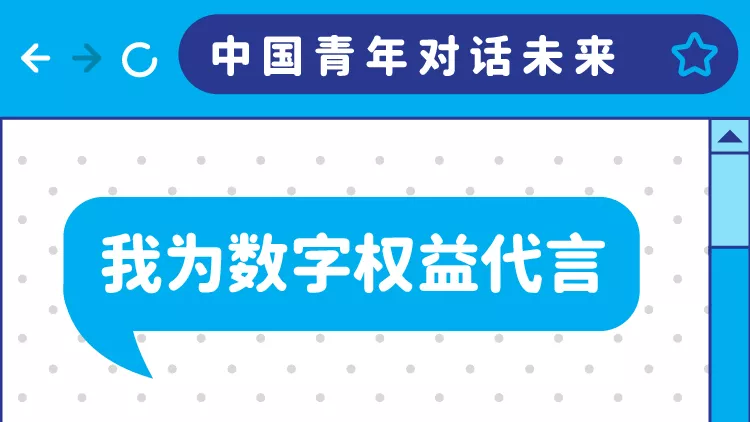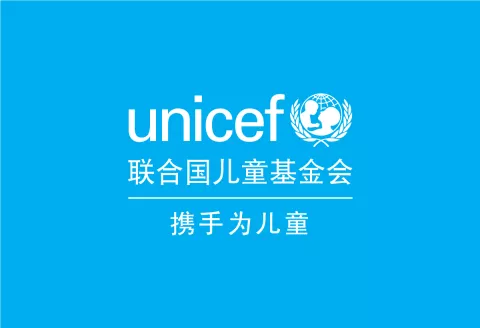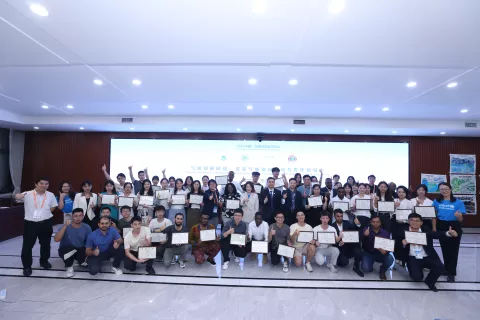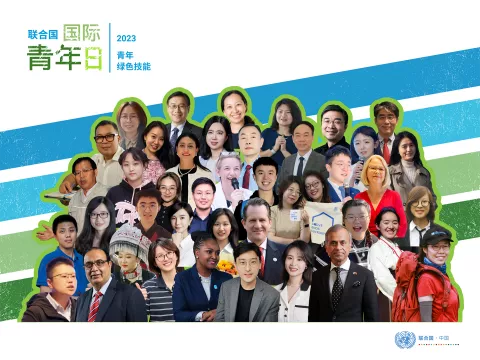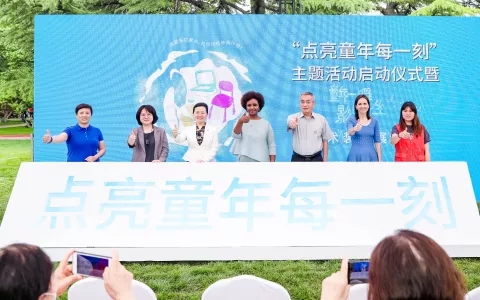Youth delegates share solutions to safeguard their digital rights
UNICEF China and Tencent hold an online dialogue to empower young people in the digital world
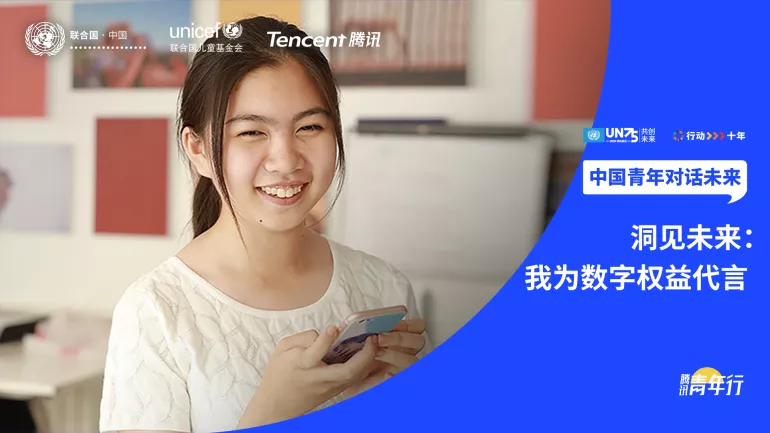
- Available in:
- 中文
- English
BEIJING, 12 July 2020 – Young people in China came together virtually for a Youth Dialogue, co-hosted by UNICEF China and Tencent, to share their perspectives on how to ensure their online experience is safe, healthy and empowering.
The 90-minute dialogue, titled ‘Digital Youth: My Life, My Future’, was held online today. It is part of the ‘Youth Dialogues on the Future’ campaign jointly initiated by the UN in China and Tencent to mark the 75th anniversary of the United Nations.
The dialogue provided an opportunity for young people to exchange ideas with industry representatives, experts, key influencers and peers on the risks and opportunities in the digital world. It also provided a chance for young people to be involved in decisions that will affect their futures.
The internet exposes children and young people to benefits and opportunities, but also to risks, including harmful content, sexual exploitation and abuse, cyberbullying and misuse of their personal information.
A recent survey jointly released by the Department of the Protection of the Rights of Youth under the Central Committee of the Communist Youth League and the China Internet Network Information Center revealed that the rate of internet access among China’s children and teenagers reached 93.1 per cent in 2019, and more children have started using the internet at an early age. Worryingly, it also showed that 46 per cent of minors have been exposed to inappropriate content online; 42.3 per cent have experienced verbal abuse; and 20.8 per cent were unaware of online privacy protection.
“The COVID-19 outbreak potentially exacerbates the risks faced by children and young people online, as they are spending longer periods of time on the internet than usual,” said Dr. Douglas Noble, Officer in Charge of UNICEF China. “We need to listen to young people, who are a key partner in advancing the 2030 Agenda. It’s important to both expand their access to the best digital technology has to offer, protect them from harm online, and empower them to know how to protect themselves.”
In a strategic partnership with Tencent since 2017, UNICEF has been working on a Child Online Protection Project to advance a shared commitment to ensuring a safe and positive online experience for all children. Over the past three years, the two parties have cooperated to protect children’s and adolescents’ digital rights, through studies on child online safety, public awareness raising campaigns and international exchanges.
“On adolescents’ healthy use of the internet, we firmly believe that a combination of imposing restrictions to avoid excessive use and empowering them to access good digital content can provide young people with a better online experience,” said Lanky Zheng, who is in charge of Tencent’s protection system for children and adolescents, and general manager of the user platform department at Tencent Interactive Entertainment Group.
Over two weeks, UNICEF China and Tencent received 757 proposals from young people aged 15-24 on topics relating to adolescents’ digital rights. Five young people were selected to present their solutions to the audience and exchange ideas with experts. They were also awarded the title of ‘Youth Champion for Digital Rights’. The topics of their proposals included: calls for all sectors in society to build a safe internet; developing family-based internet education; promoting traditional culture through digital technologies; eliminating barriers to digital technology; and empowering young people to improve their internet literacy.
Ji Xiaonan, a 17-year-old student from Beijing, calls for a shift from an adult-dominated approach that emphasizes ‘protection and control’ to one that enables adolescents to foster better internet literacy. “For parent-child interactions around the internet, we should avoid confrontations and push for dialogue. Parents and children should see each other as equals, share their ideas, learn together, and make rules about the use of the internet with each other,” said Ji. She also hopes that internet literacy will be incorporated into school curricula.
19-year-old Zhao Chen, who is visually impaired, shared a story about the challenges he has encountered while surfing online, and proposed the use of artificial intelligence and big data to help remove the barriers in the digital world for people with disabilities.
“With the help of a screen reader, which is a type of assistive technology, I can use a computer in the same way as most people. But the design of many applications presents impassable barriers for those using assistive technology. The best example is the identity verification mechanism that we all frequently encounter,” Zhao said. “I hope that in the near future anyone who has impaired mobility, speech or hearing will have access to all the opportunities that digital technology offers. And no matter how different we are physically the world will respect us and treat us well.”
The panel of experts included Professor Chen Changfeng, Executive Dean of the School of Journalism and Communication at Tsinghua University, Zhang Chunfei, Deputy Director of the Policy and Economics Research Institute at the China Academy of Information and Communications Technology, and young influencer, Pianpian, who is a vlogger and movie and TV reviewer. Each gave comments on the proposals raised by the youth delegates and shared their perspectives and ideas.
Well known actress Zhou Dongyu also made a surprise appearance at the dialogue. In a pre-recorded video message, she called for attention to young people’s safe and healthy use of the internet, encouraged young people to share their solutions and pledged to work with all parties to bring positive changes to the digital world.
“We can expect, with new technologies in the future, that young people may enjoy a better digital life. With the evolving development of technologies, including artificial intelligence, augmented reality, and virtual reality, we can try using diversified means and methods to support the all-around development of youths, help them unlock their potential, explore the world, and create infinite possibilities,” said Lanky Zheng.
About Tencent
Tencent was founded in Shenzhen, China, in 1998, and uses technology to enrich the lives of Internet users. Our corporate mission & vision is “Value for Users, Tech For Good”. User value is our guiding principle, we strive to incorporate social responsibility into our products and services; promote technology innovation and cultural vitality; help industries digitally upgrade; collaborate for the sustainable development of society.
Media contacts
Additional resources
About UNICEF
UNICEF works in some of the world's toughest places, to reach the world's most disadvantaged children. Across 190 countries and territories, we work for every child, everywhere, to build a better world for everyone.
| Visit UNICEF Global website: www.unicef.org Visit UNICEF China website: www.unicef.cn Follow us on Sina Weibo: http://weibo.com/unicefchina Tencent Weibo: http://t.qq.com/unicef Wechat: unicefchina |


